WORKS
WORKS
Family Pictures USA
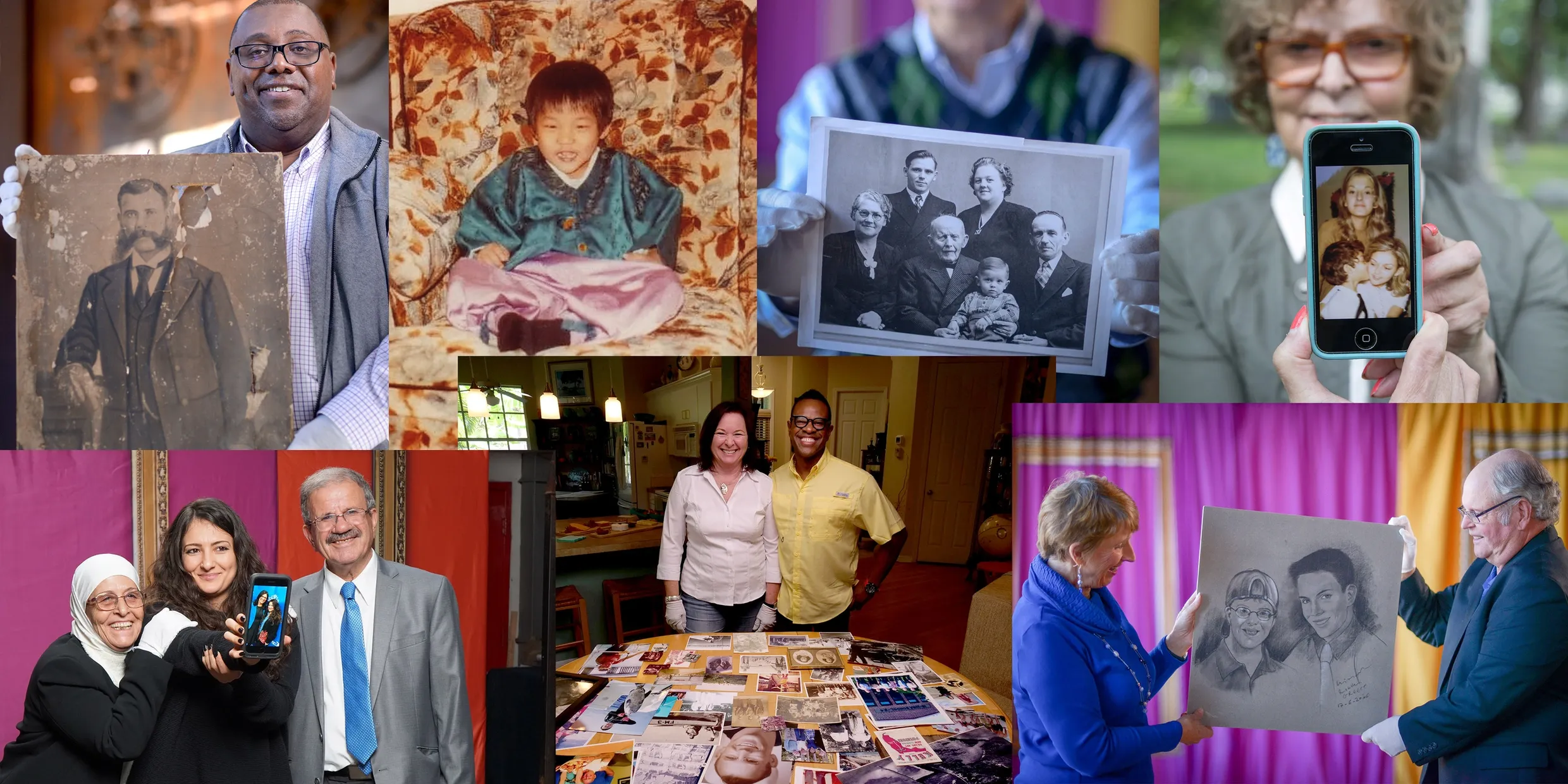
Family Pictures USA is a nationally broadcast PBS documentary-style series, which was broadcast to over 5.3 million viewers in 2019. It journeys through a rapidly changing landscape where the foundations of a familiar and idealized “AMERICA” are being transformed. Through sharing family photographs, ordinary Americans discover their hidden family histories, and meet unknown relatives and old family friends — introducing us to a more nuanced and diverse story of our common history, shared present and evolving future. Family Pictures USA mines this rich treasure trove of personal narratives and reveals roots, connections, and provocative parallels that surprise us and illuminate the path toward a new America for the 21st Century.
Feature Films
Through A Lens Darkly
2014
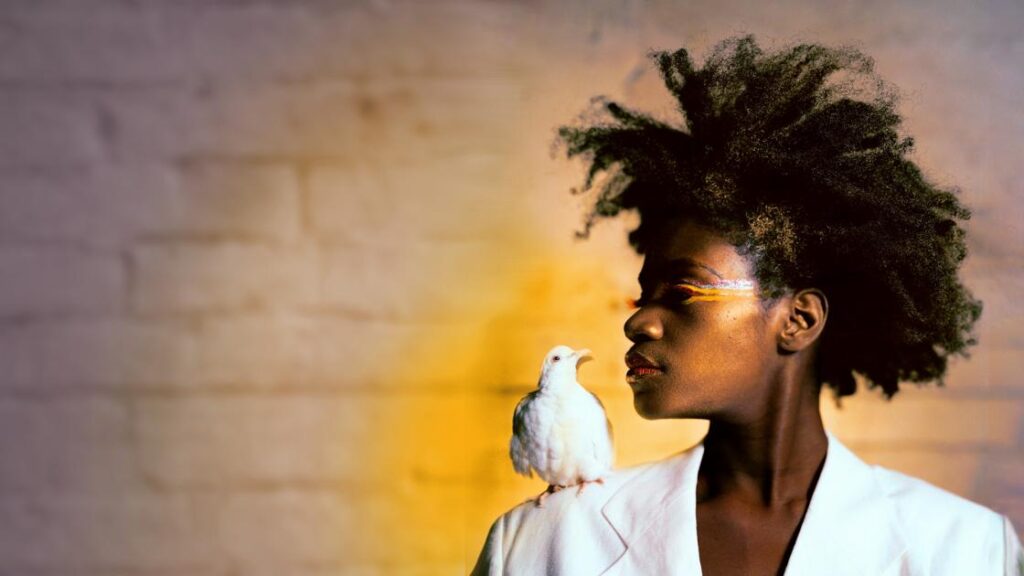
“A family memoir, a tribute to unsung artists and a lyrical, at times heartbroken, meditation on imagery and identity.” – NYT
Best Documentary – NAACP Image Award
Best Diaspora Documentary – African Academy Award
Through A Lens Darkly
2014
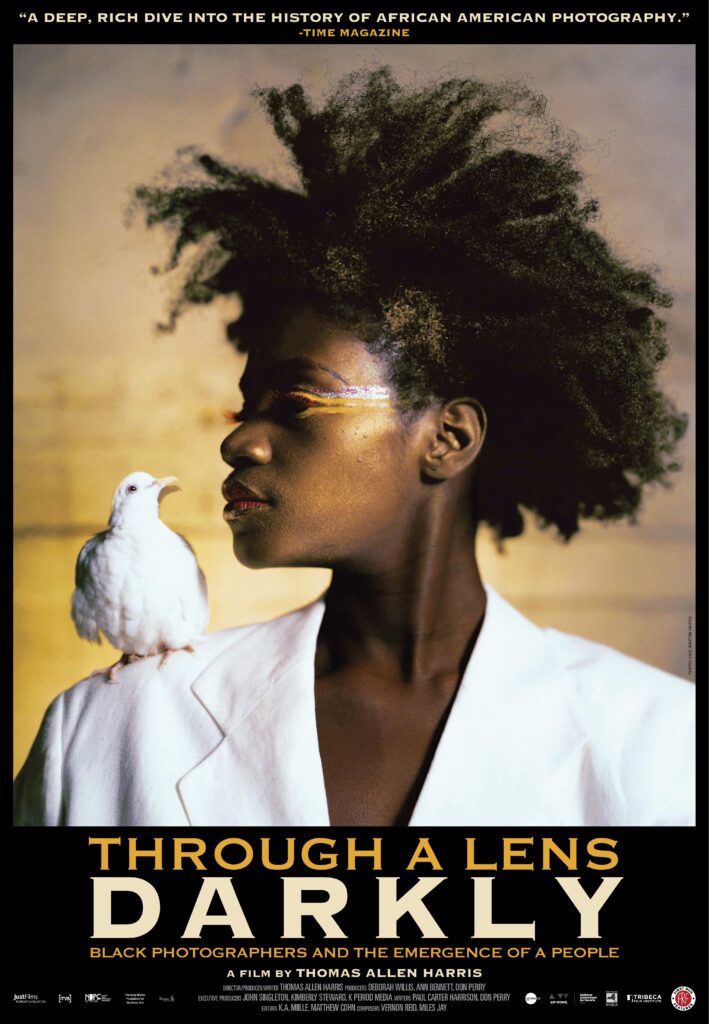
“A family memoir, a tribute to unsung artists and a lyrical, at times heartbroken, meditation on imagery and identity.” – NYT
NAACP Image Award – Best Documentary
African Academy Award – Best Diaspora Documentary
Twelve Disciples of Nelson Mandela
2005
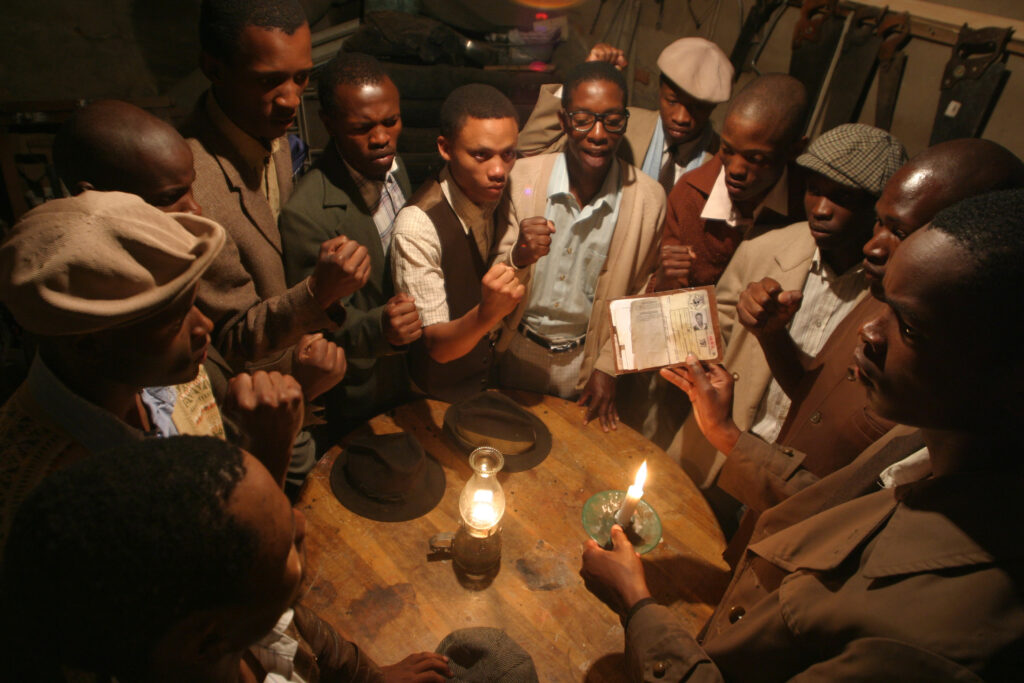
“A fascinating glimpse not just of the early campaigns of the African National Congress, but also of the way childhood memories can obscure larger truths.” – NYT
Best Documentary – Pan-African Film Festival, Santa Cruz Film Festival
Twelve Disciples of Nelson Mandela
2005
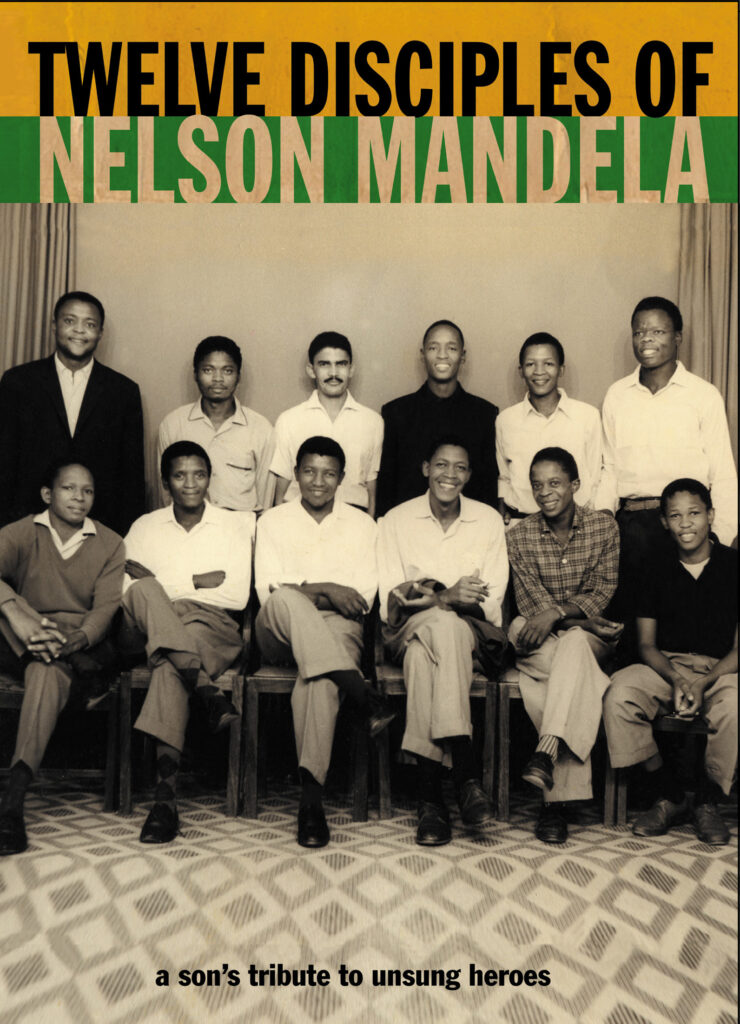
“A fascinating glimpse not just of the early campaigns of the African National Congress, but also of the way childhood memories can obscure larger truths.” – NYT
Best Documentary Award – Pan-African Film Festival, Santa Cruz Film Festival
É Minha Cara/That's My Face
2001
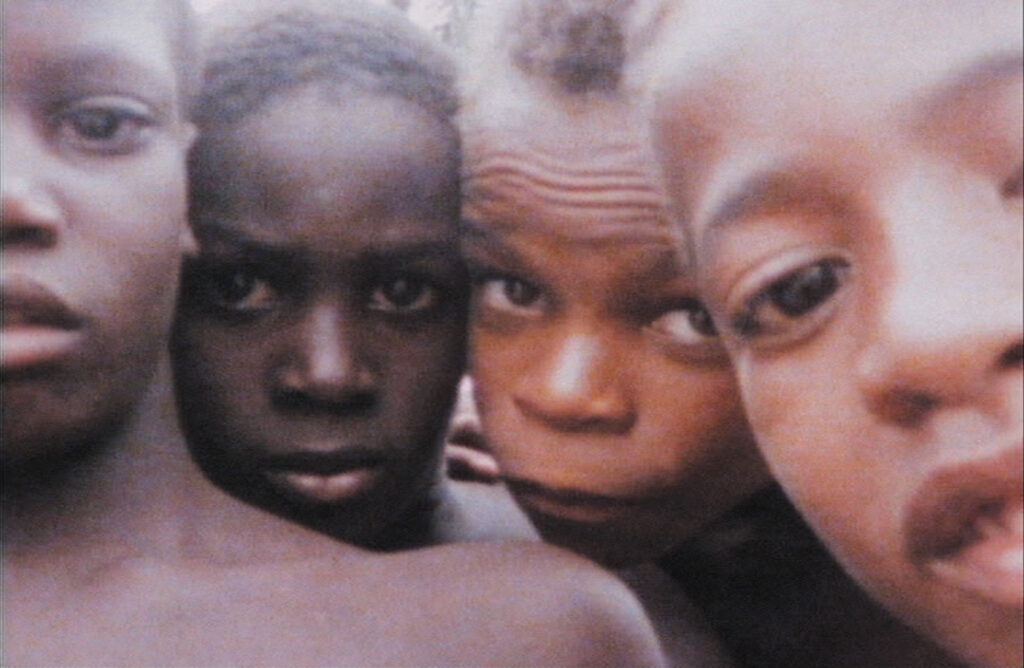
É Minha Cara/That’s My Face is a mythopoetic odyssey exploring identity and spiriuality across three generations of an African-American Family. Twenty years ago, Thomas Allen Harris’ mother made the journey with her family to Tanzania in search of a mythic wonderland. Now, Harris embarks on a journey to the city of Salvador Da Bahia – the African heart and soul of Brazil – seeking the identity of the spirits who haunt his dreams.
“A visually gorgeous melding of poetry and politics” – LA Weekly
Best Documentary – OUTFEST, San Francisco Black Film Festival
É Minha Cara/That's My Face
2001

“Harris’ work has him hitting spots around the world – Brazil, Burkina Faso, Malibu – in order to challenge modern definitions of Africa, African-ness and blackness. It’s a visually gorgeous melding of poetry and politics” – LA Weekly
Best Documentary – OUTFEST, San Francisco Black Film Festival
Vintage: Families of Value
1995
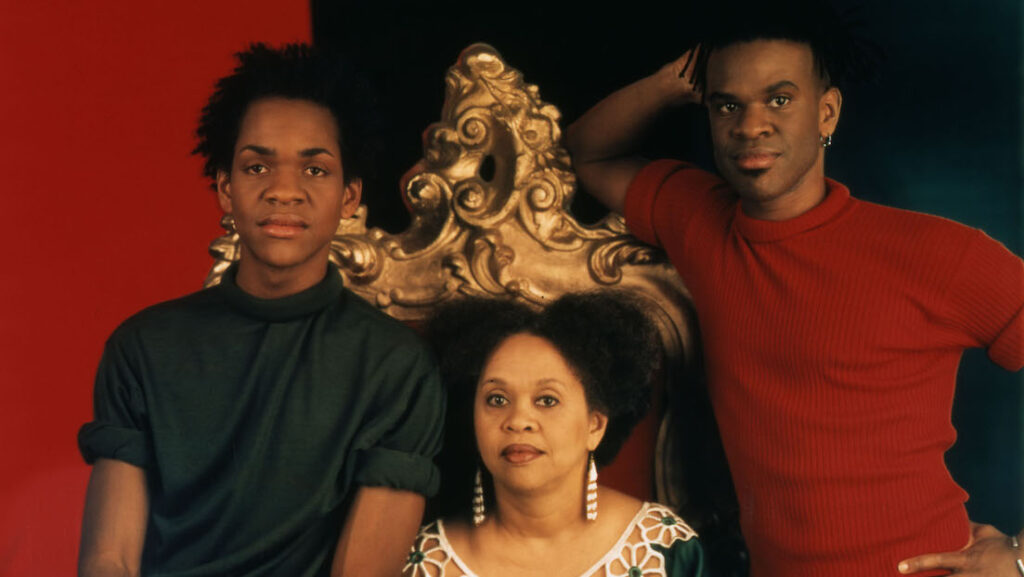
“Picturing three African American families through exchanges between queer siblings—including Harris and his brother, artist Lyle Ashton Harris—and their family members, Vintage creates a poignant collective portrait. The filmmaker wrote that he was “cutting through popular fictions of the ‘vanishing’ black family,” offering instead a powerful montage exploring parent-child relationships, gender identity, and the potential for dialogue as a form of care.” – MoMA
Best Documentary – Atlanta International Film Festival, San Francisco International Film Festival
Vintage: Families of Value
1995
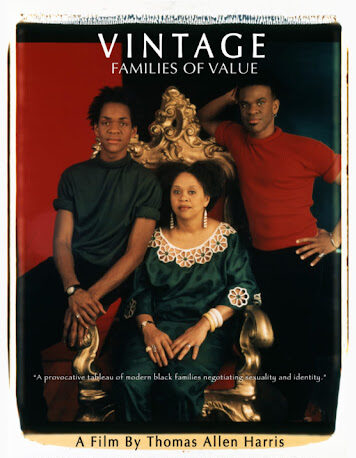
“A powerful montage exploring parent-child relationships, gender identity, and the potential for dialogue as a form of care.” – MoMA
Best Documentary – Atlanta International Film Festival, San Francisco International Film Festival
Short Films
Marriage Equality: Byron Rushing and the Fight for Fairness
2010
The first film to illuminate the role of African Americans in securing same-sex marriage as a Civil Right, Marriage Equality focuses on Massachusetts State Representative Byron Rushing, who together with a group of progressive Black clergy and activists took the campaign for same sex marriage into the Black community.
About Face: The Evolution of a Black Producer
As the AIDS epidemic in New York escalated during the ‘80s, a young, out, Black producer was fighting to get information about the crisis on screen. Thomas Allen Harris, raised by activists in the Bronx and East Africa, produced a series of public television programs focused on HIV/AIDS, bringing folks who were previously ignored by mainstream media to the core of public discussion. Despite the program’s success in breaking open the narrative of the crisis, the pushback Harris received from the channel’s executives and constraints of corporate media ultimately led the artist to suspend work in public television. 28 years later, Harris draws from these resurfaced tapes and an essay he’d written at the time: “About Face: The Evolution of a Black Producer”.
Heaven, Earth, and Hell
Reflecting upon the figure of “Trickster” in African and Native American culture while recounting the story of his first love, Harris creates a graceful, deeply moving lament for the loss of innocence in a world without magic. This beautiful work incorporates the critical texts of Frantz Fanon, bell hooks and James Baldwin.
To purchase the full film, visit Third World Newsreel
Black Body
During the 1992 Los Angeles uprisings while watching it on television, at the Experimental TV video art residency, the artist wrapped himself in wire over a period of four days to meditate on the body’s physical and psychic interaction with the legacy of oppression characterizing the experiences of African-American communities in this country.
To purchase the full film, visit Third World Newsreel
Splash
Splash (1991) explores the interplay between identity, fantasy, and homosexual desire in pre-adolescence within the narrow confines of black masculinity. The tape is an exploration of the filmmaker’s psycho-social and sexual development within a society that encourages the consumption of whiteness and heterosexuality. Splash reveals how the family becomes the agency through which sexual repression and gender conformity are carried out.
To purchase the full film, visit Third World Newsreel
Installations
House of Haizlip
2024
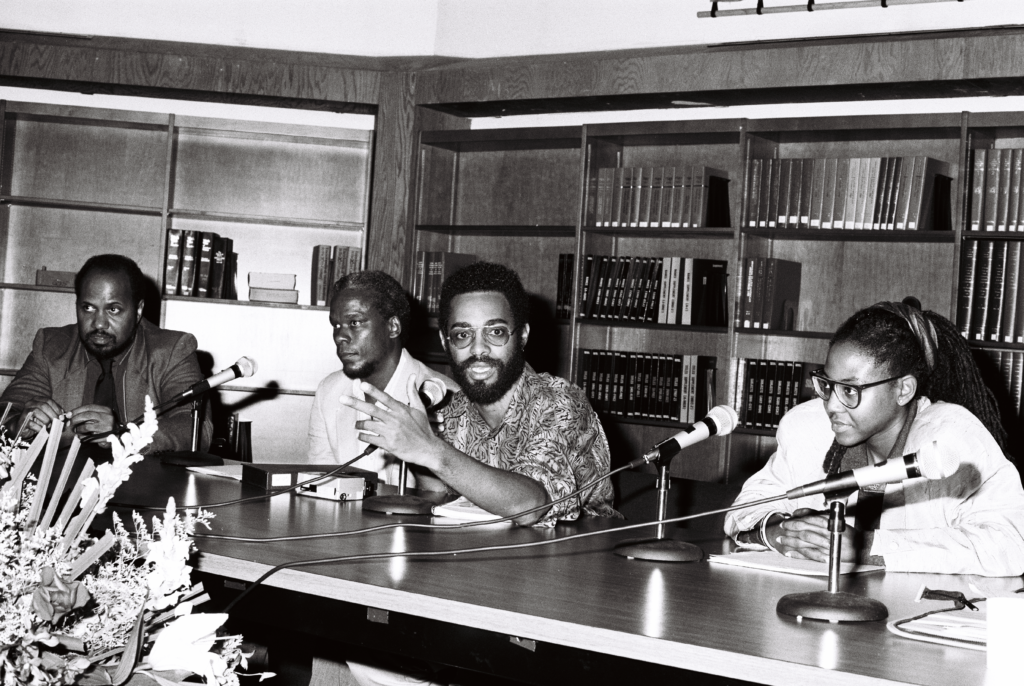
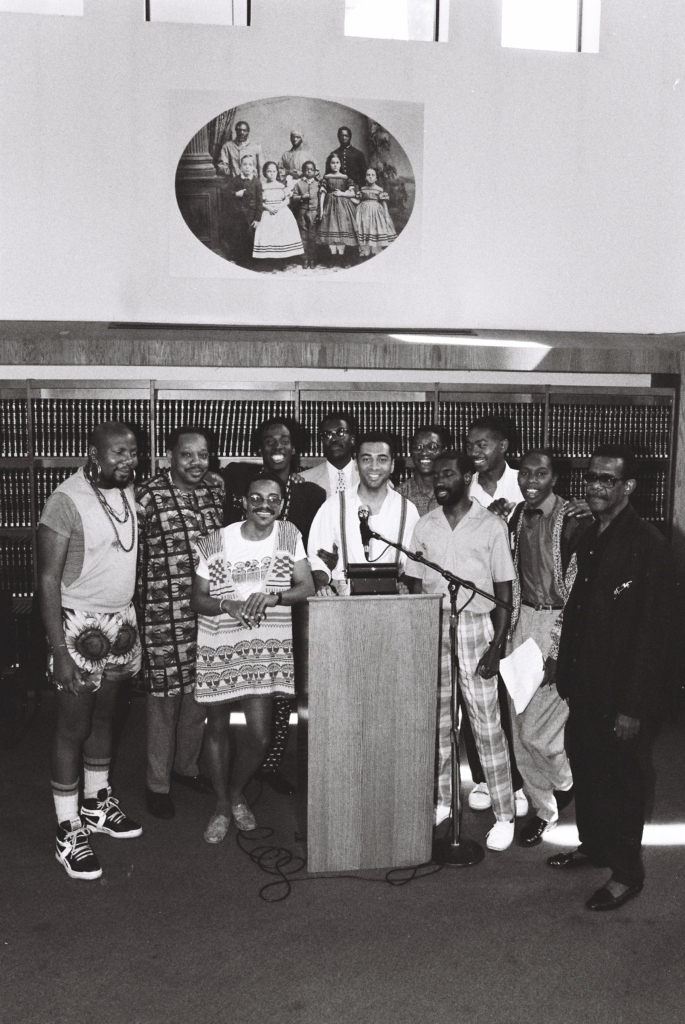
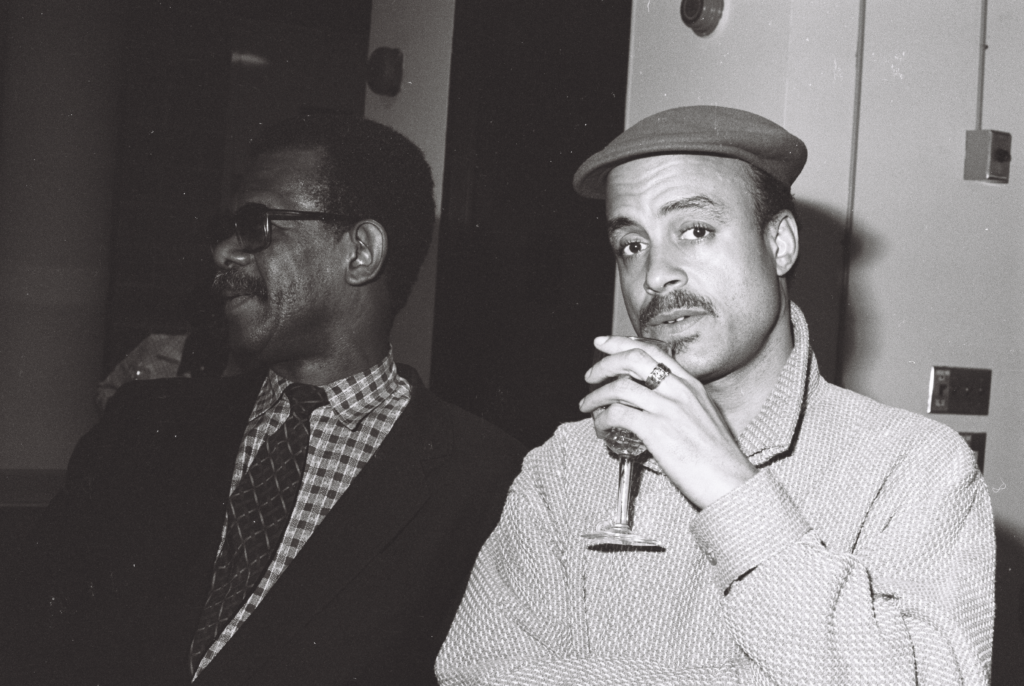
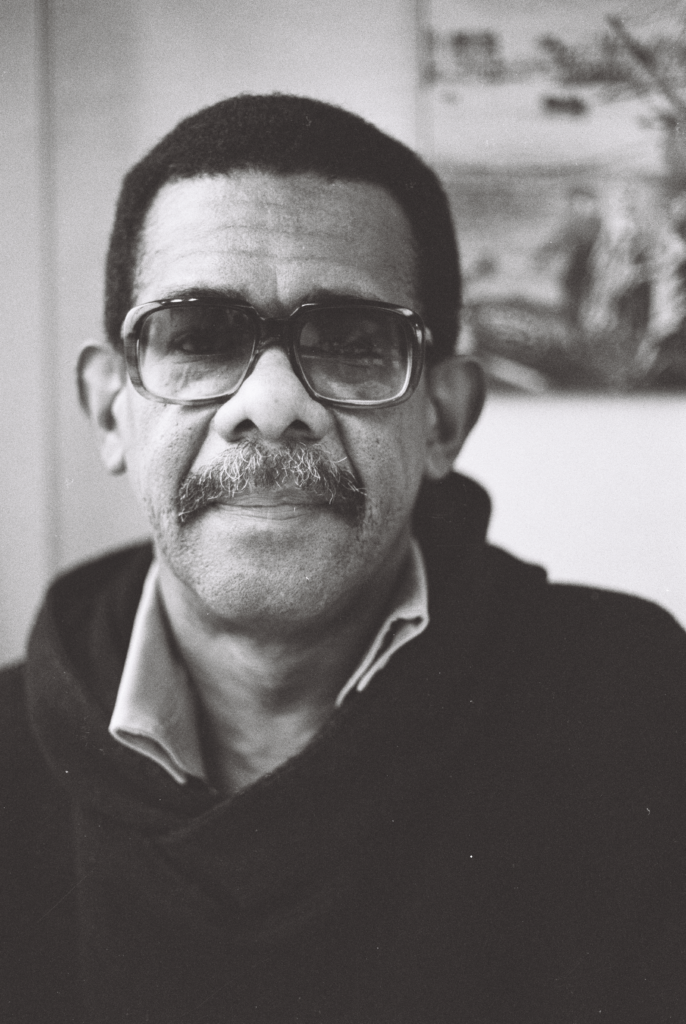
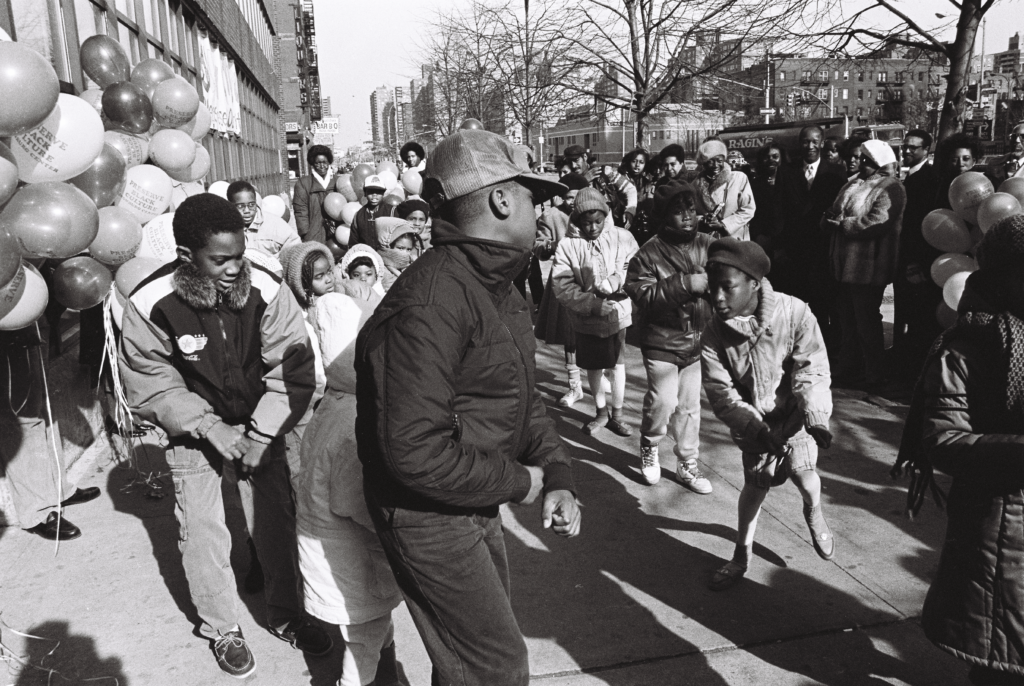
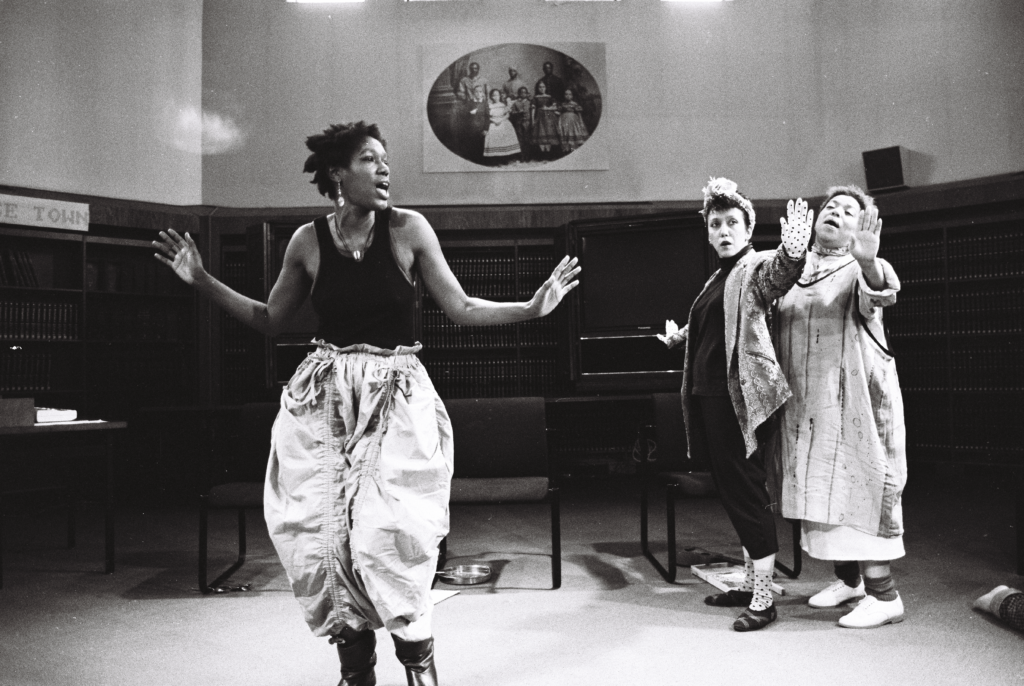
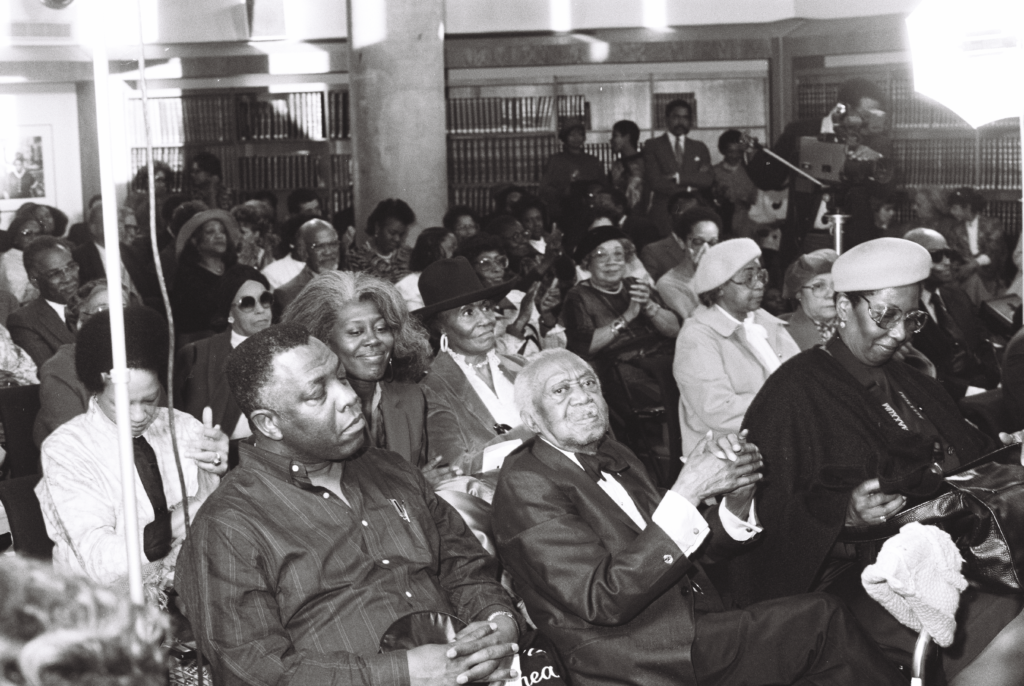
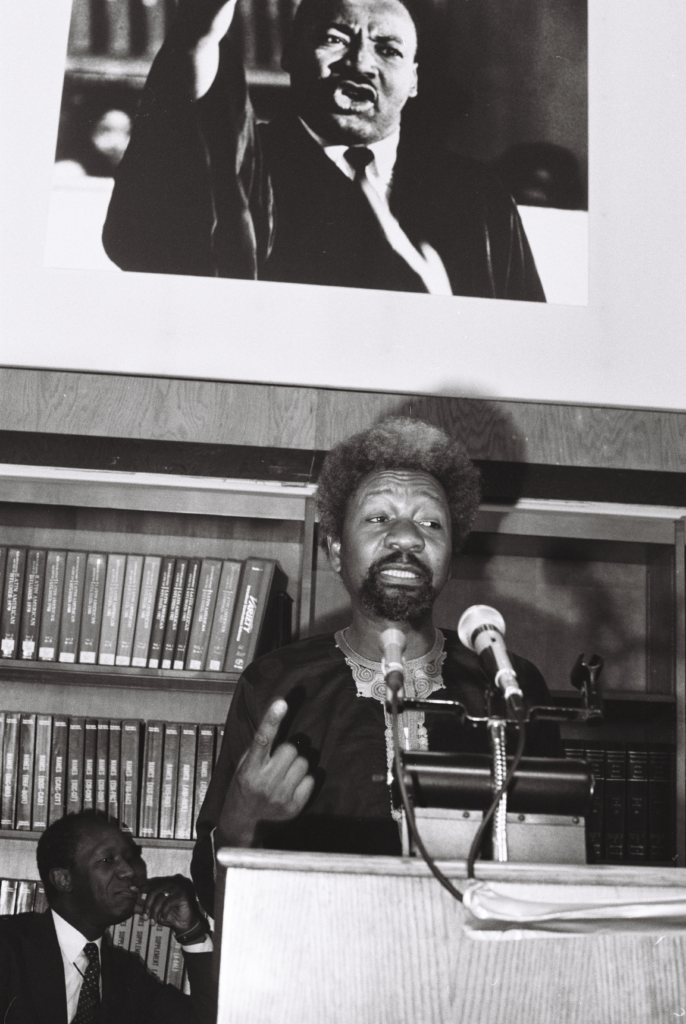
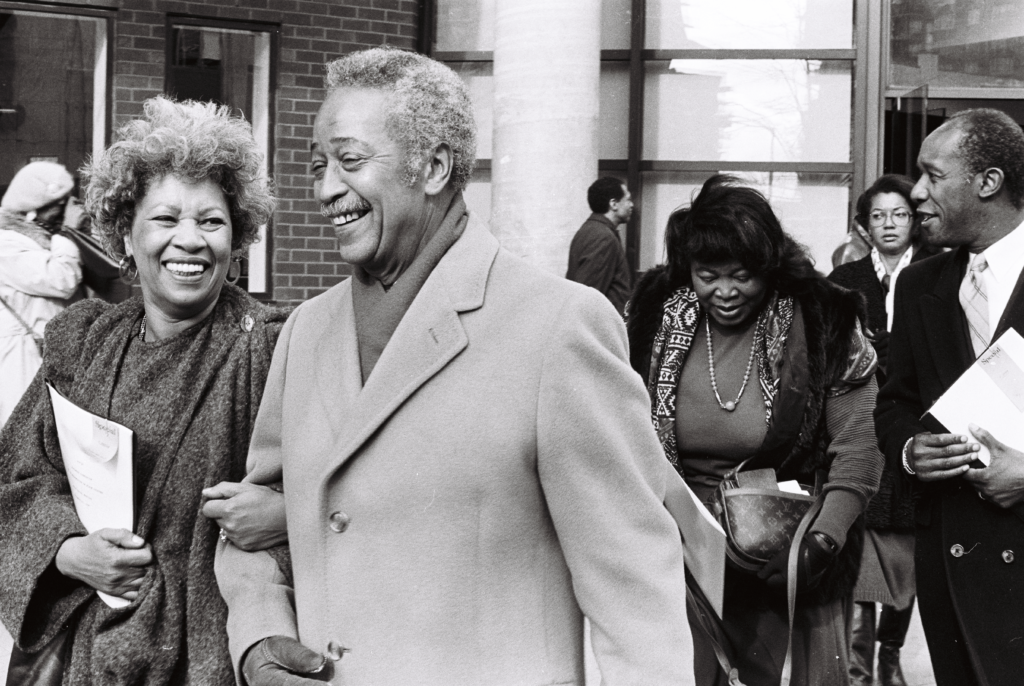
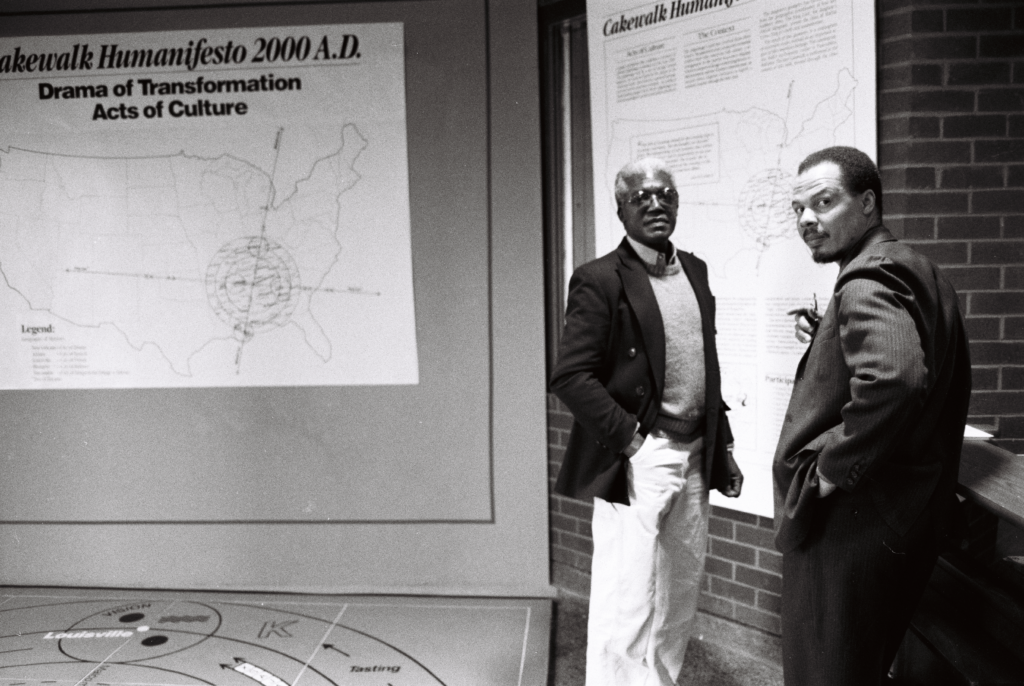
A traveling, dynamic exhibition, House of Haizlip provides a glimpse into filmmaker and scholar Thomas Allen Harris’ vast archive of 1980 black and white photography. It showcases events hosted between 1986 and 1989 at the Schomburg Center for Research in Black Culture, highlighting themes of community-formation, Black and queer identity, and activism and spirituality. These motifs anticipate the central concepts of Harris’ later films, thus offering an opportunity to view Harris develop his insightful eye in this time and place. But it is Harris’ meditations of the programmer of these events, Ellis Haizlip—a close friend and mentor to Harris; the creator, producer, and host of SOUL!; and the subject of Melissa Haizlip’s 2018 NAACP Award-winning documentary, Mr. Soul—that ground the show. Through these images, Harris connects Haizlip’s queer family-making practices to the Schomburg’s transition into a community-oriented institution. By bringing Haizlip’s work at the Schomburg into the present, Harris queries his mentor’s enduring impact and speculates, more broadly, about the role of queer ancestors in our social, cultural, and political lives. House of Haizlip prompts the viewers’ participation in thinking deeply about how our queer ancestors live on in/through/with our work.
Mother, Bethel, Harlem, USA
2018
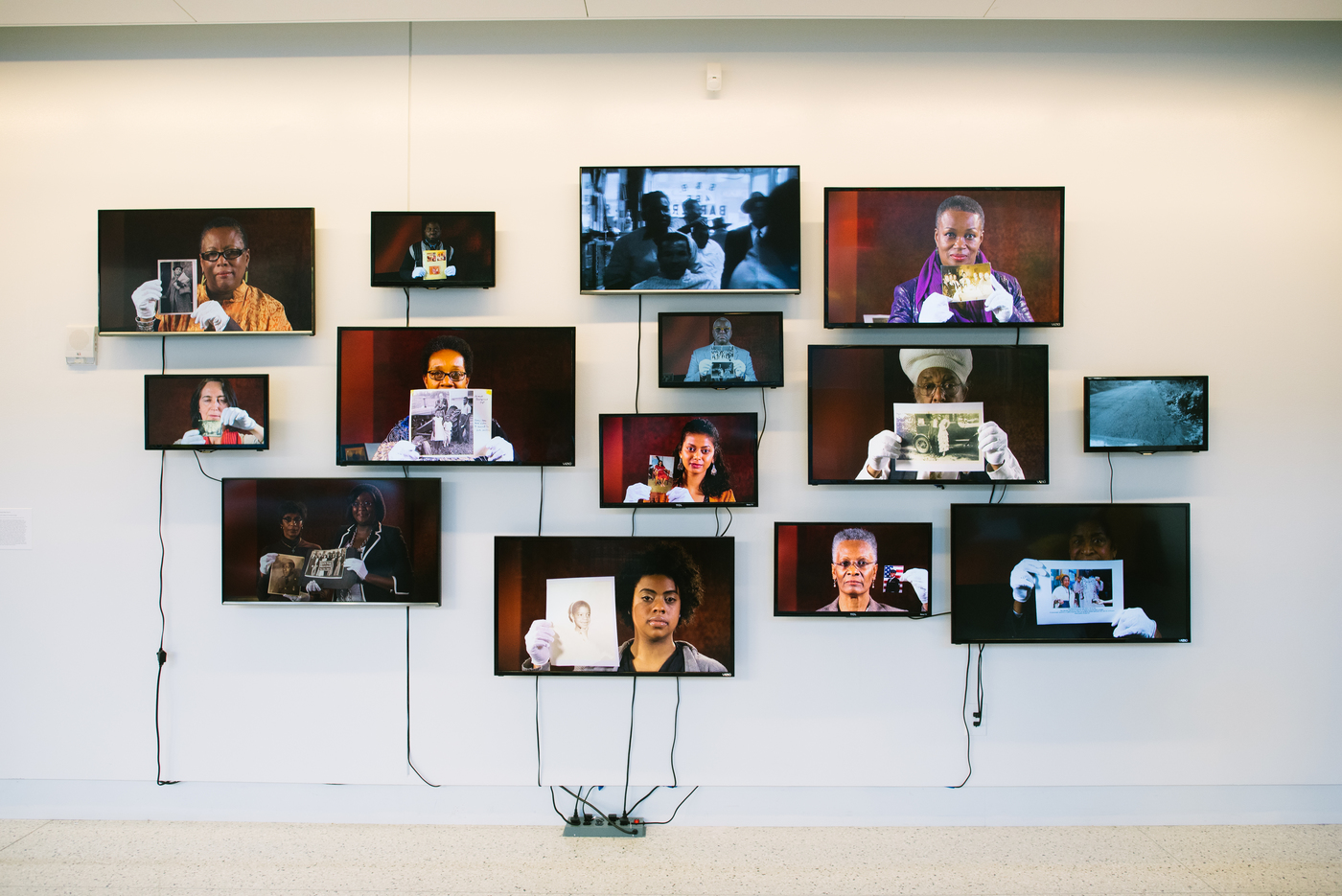
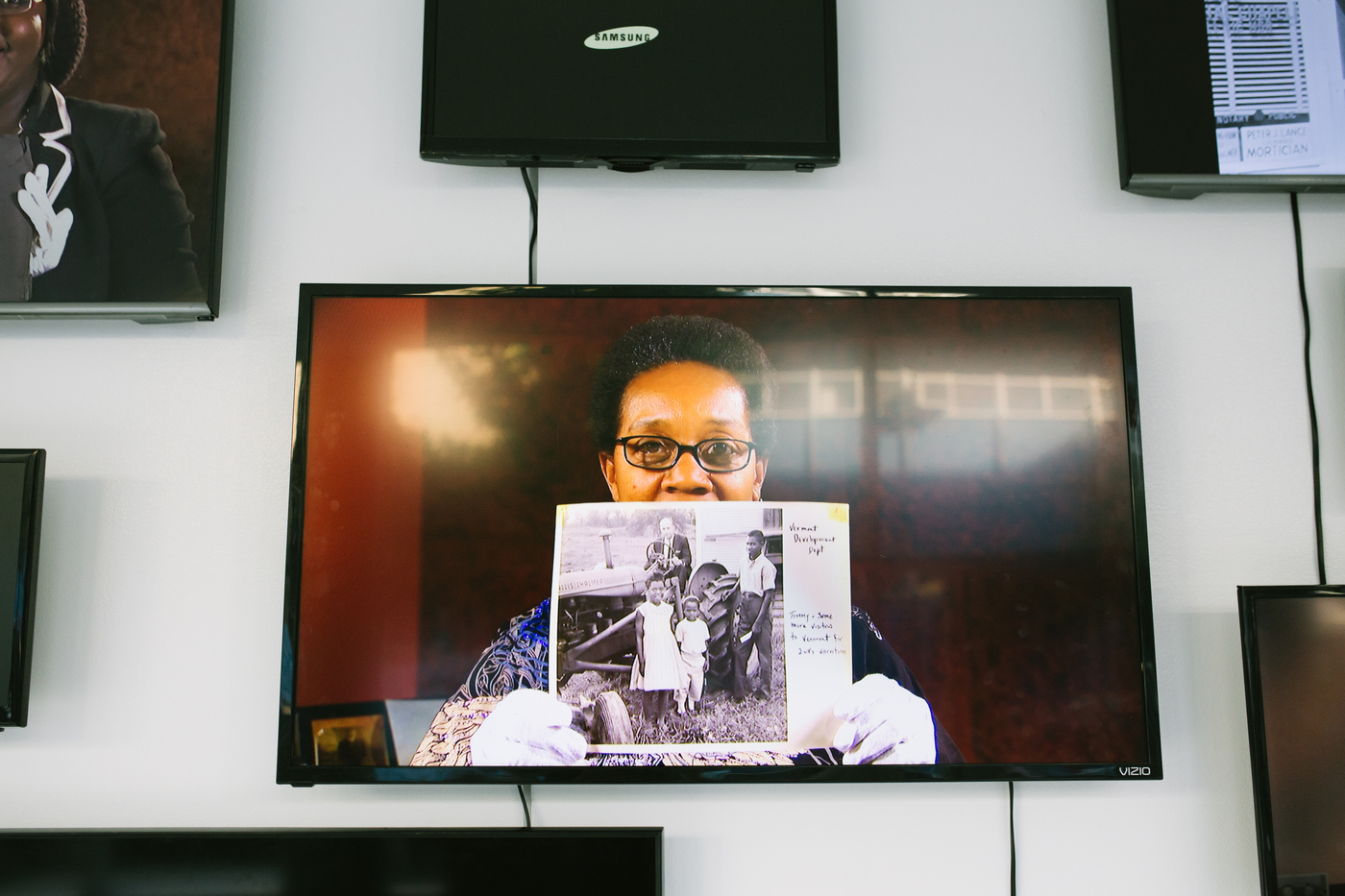
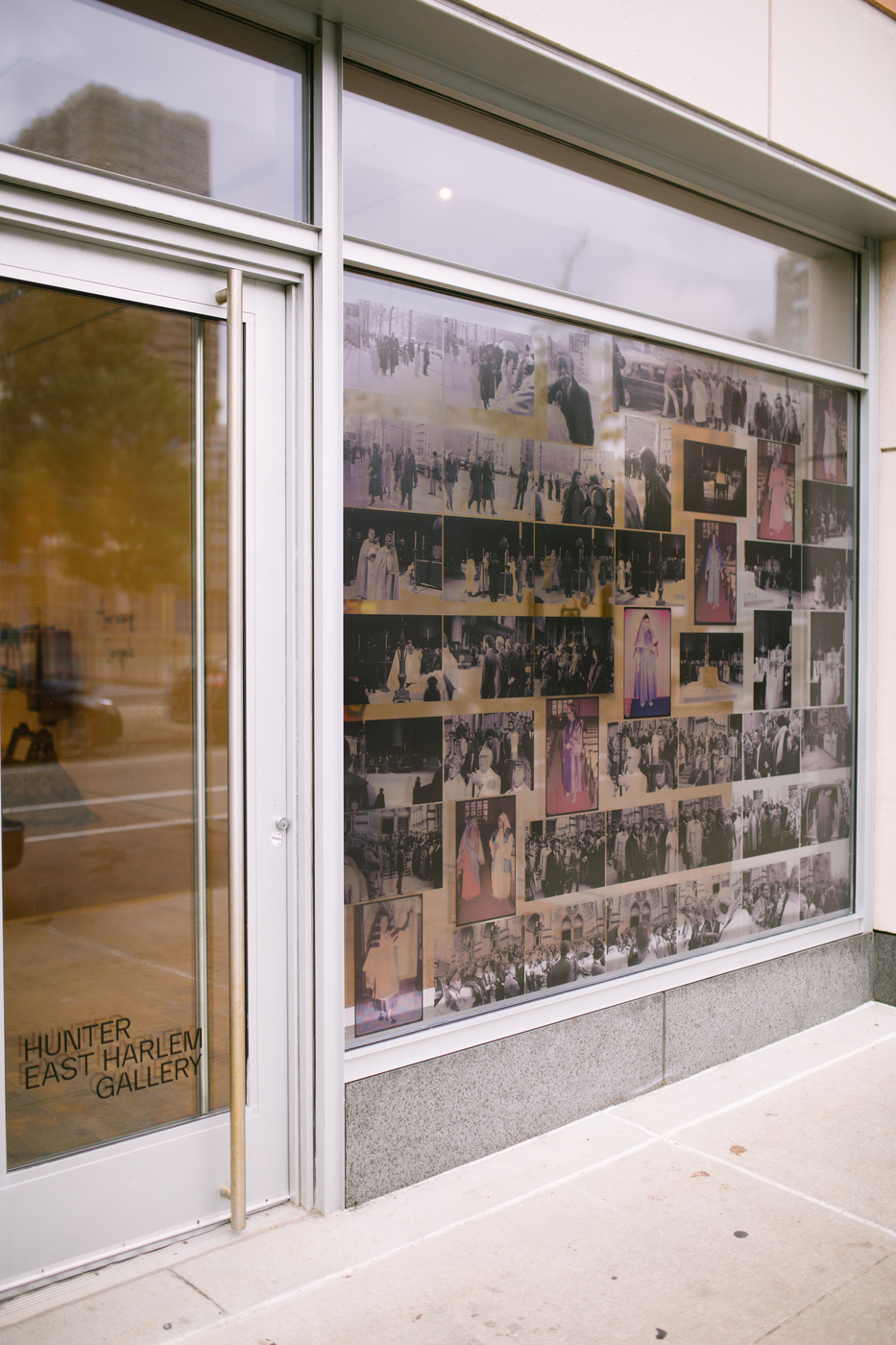
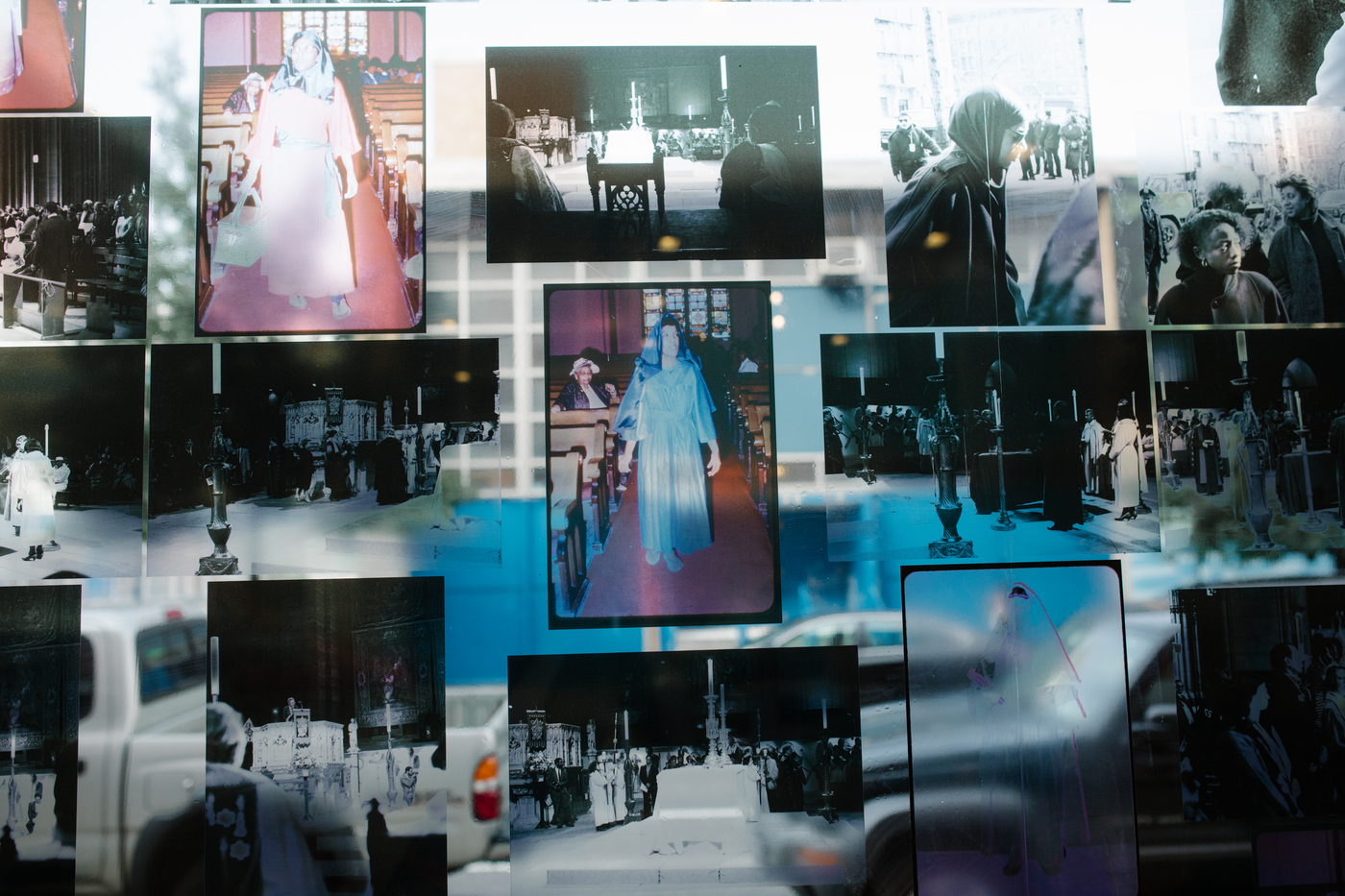
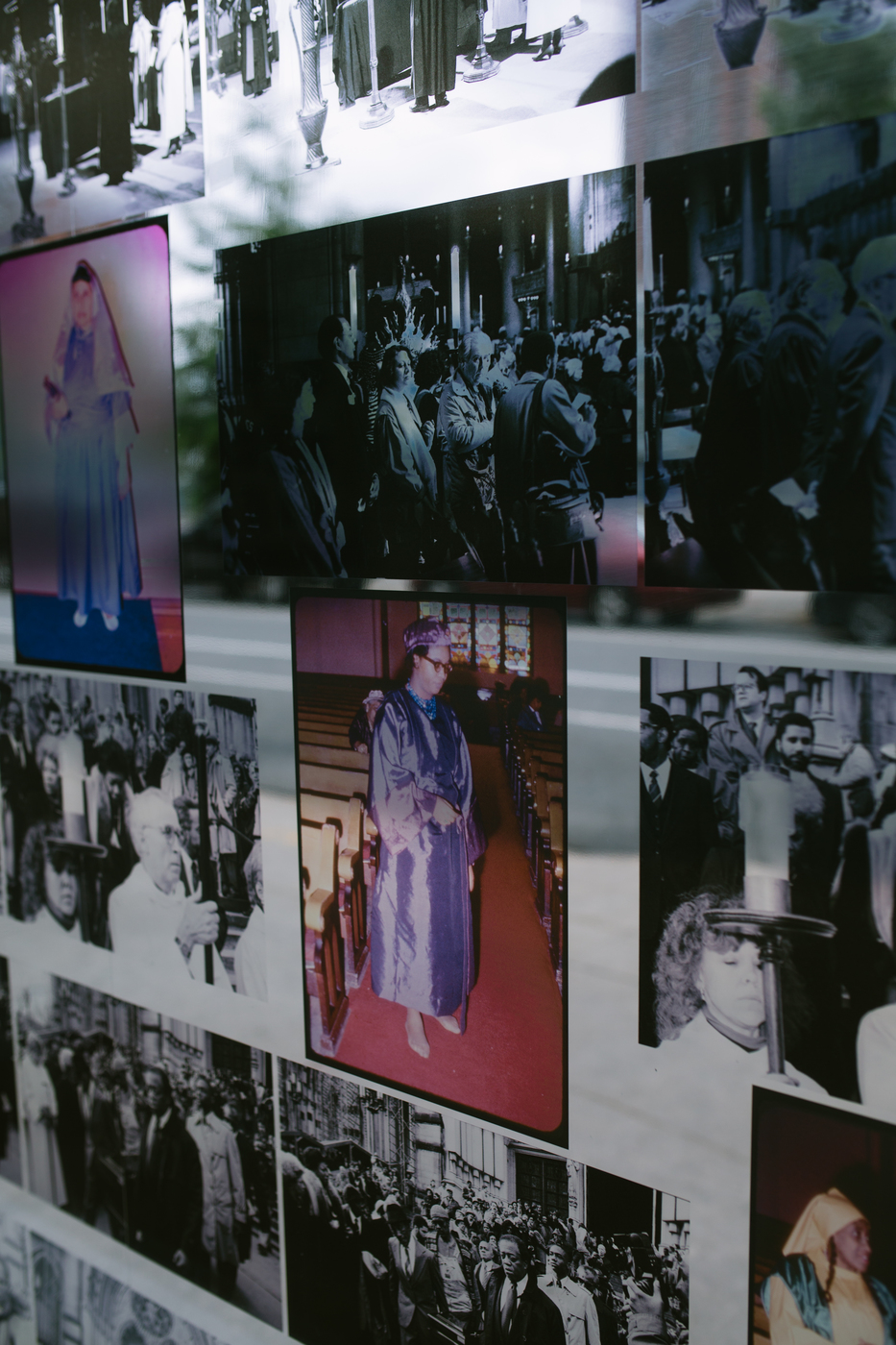
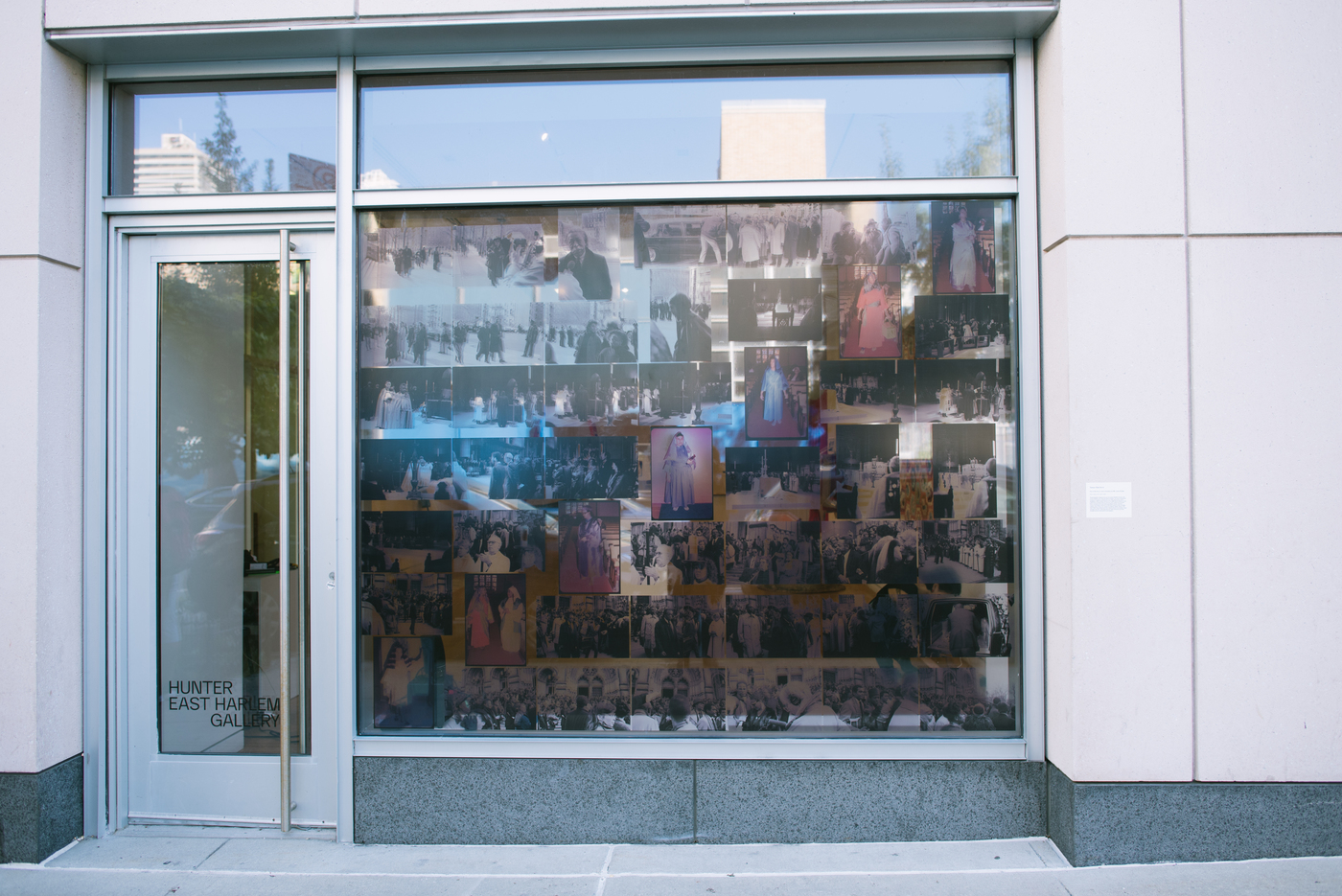
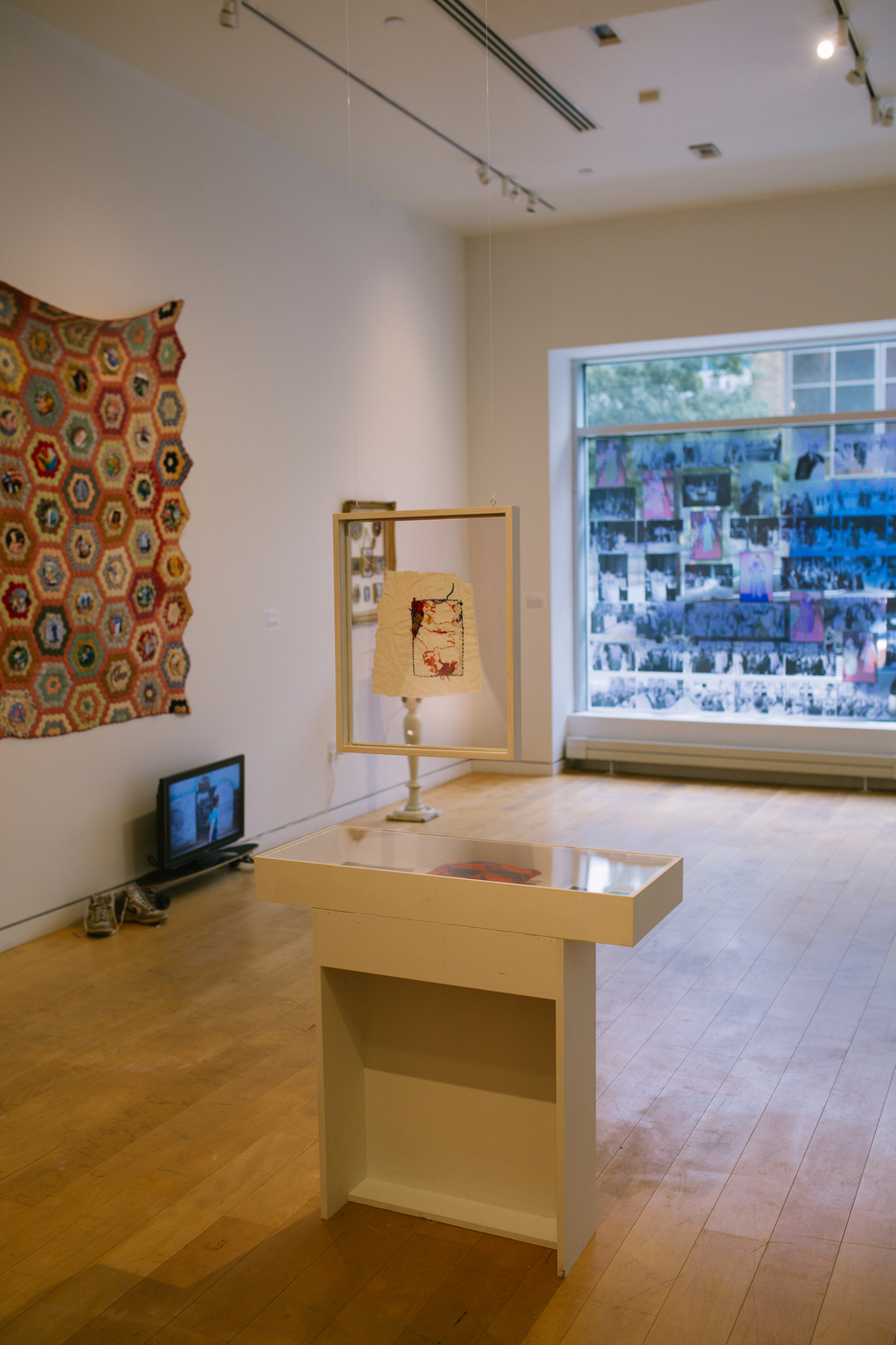
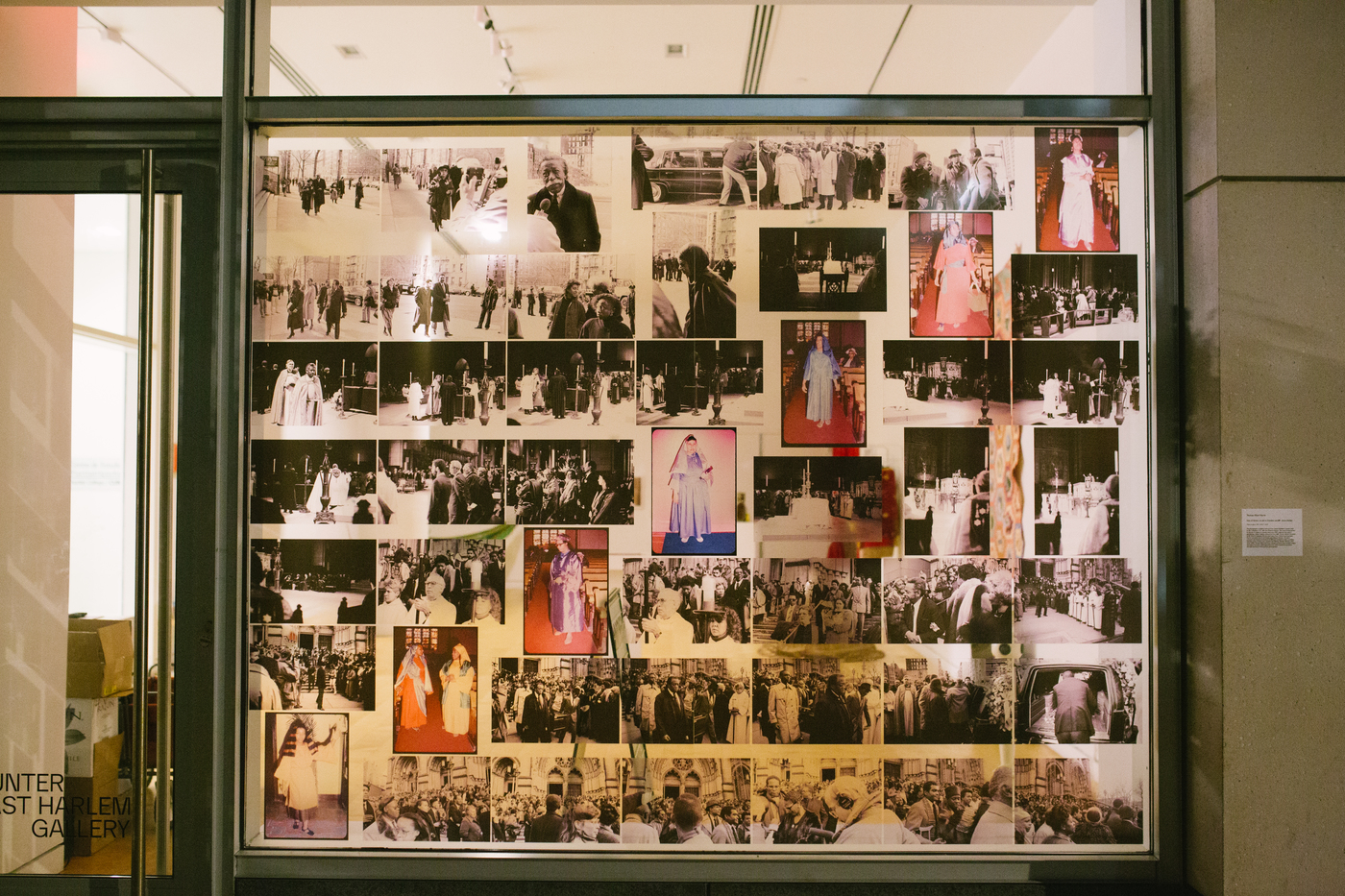
Mother, Bethel, Harlem, USA is an exhibition by artist and filmmaker Thomas Allen Harris. Harris worked in collaboration with students from the Hunter College IMA MFA program to build an interactive exhibition at Hunter East Harlem Gallery. Drawing from found, generated, and reimagined archives, as seen in Harris’ project Digital Diaspora Family Reunion, students remix and expand the archive within the gallery space using methodologies that Harris has been pioneering for the over 25 years in his socially engaged, participatory, and experimental creative practice. Since 2009, through his project Digital Diaspora, Harris has collected over 3,000 interviews and stories where the photograph is the central launchpad for personal narrative. The materials and documentation from Digital Diaspora are interwoven with Harris’ family archive, sourced largely from the Harlem-based church First AME Church: Bethel.
Investigations into historical visual materials like family albums, vintage photographs, archival film, and personal narratives become central to the development of Mother, Bethel, Harlem, USA. These archival materials illuminate the neighborhood’s stories, giving shape to a history sourced directly from its residents. The result is a dynamic exploration into themes of collective memory, transference, and renewal within movements and communities. Mother, Bethel, Harlem, USA is a collaborative exhibition inside the gallery during the month of September 2018.
AFRO is Just a Hairstyle: Notes on a Journey Through the African Diaspora
1999
AFRO (is just a hairstyle) documents three public spaces that shaped the personal and creative development of Harris and his work: The Festival of Iemanja, a festival honoring the Goddess of the Sea brought to Brazil by former enslaved people; FESPACO, the oldest & largest film festival in Africa, held in the city of Ouagadougou, Burkina Faso; and AT THE BEACH, an event that brings together queer people of color to take over a Malibu beach and celebrate pride. Shot on silent Super 8 film and played alongside each other, AFRO bridges the geographic gap of these three events to communicate his personal connection of community across the African Diaspora.
Alchemy
1997
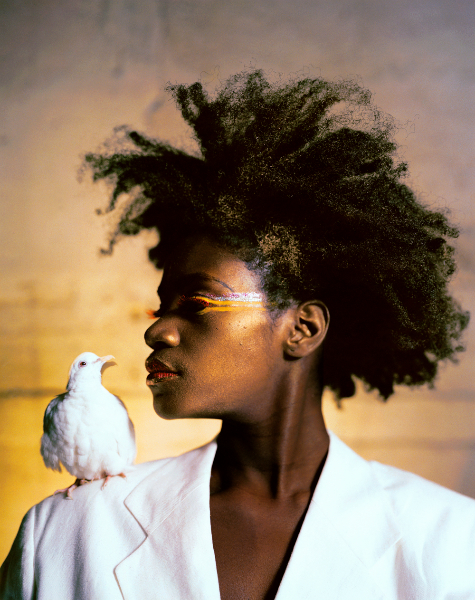
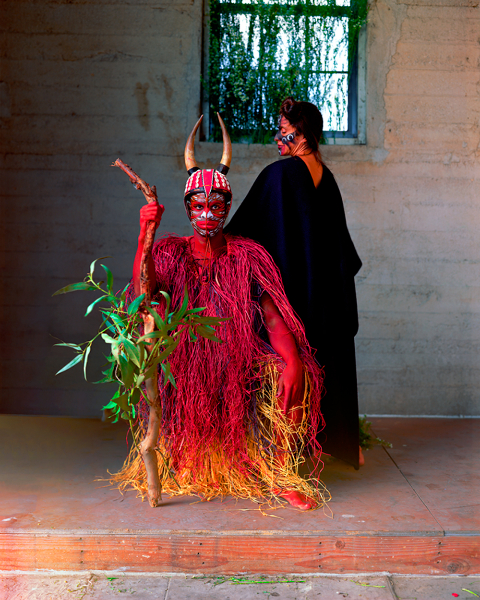
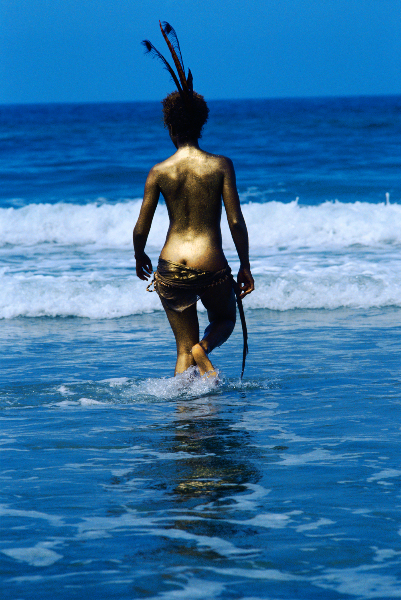
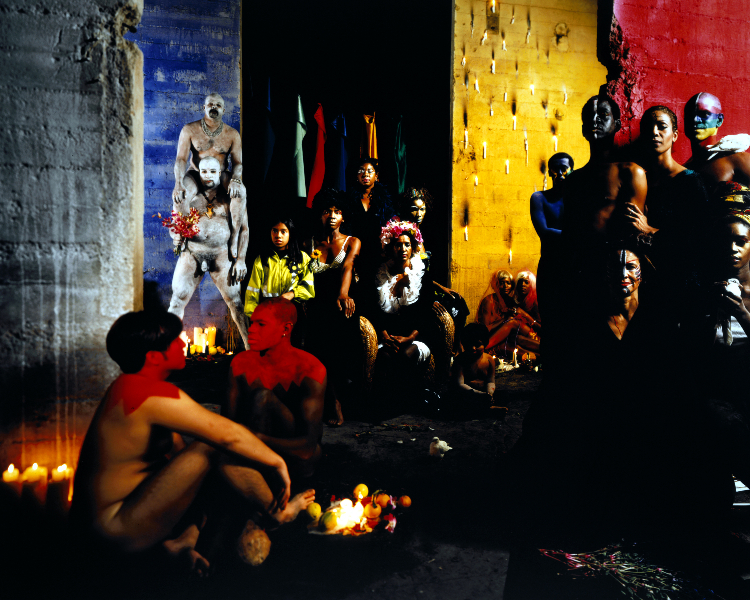
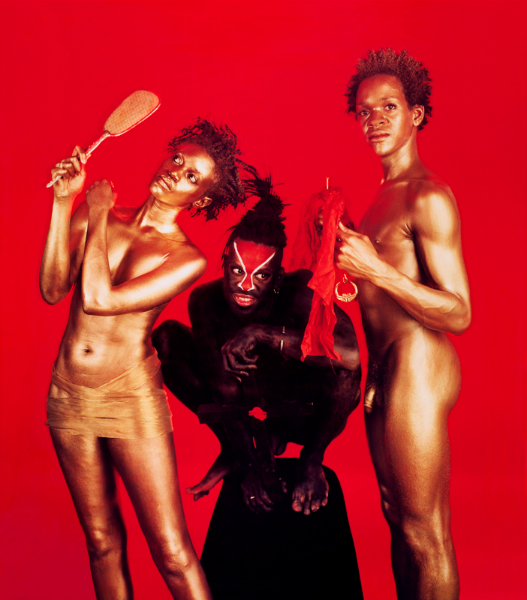
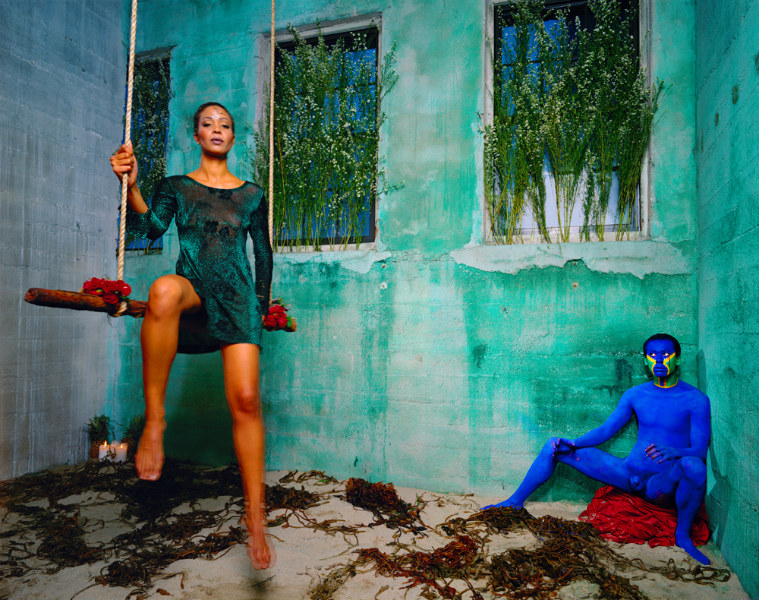
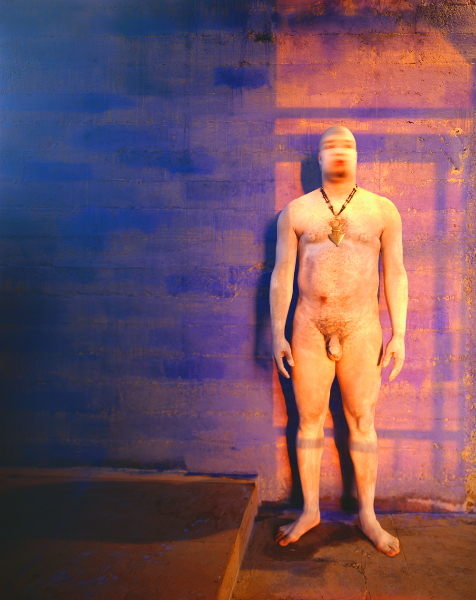
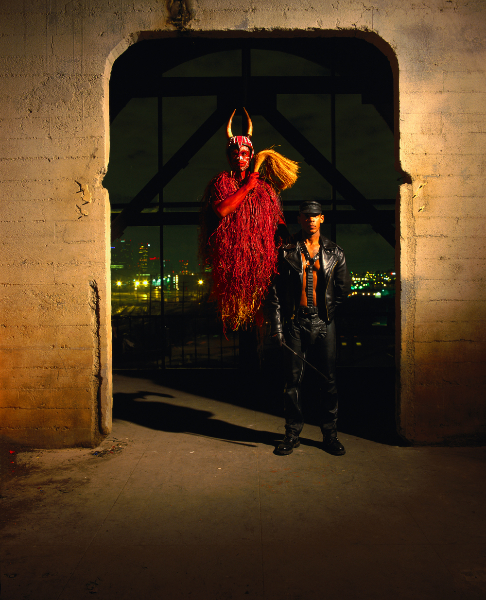
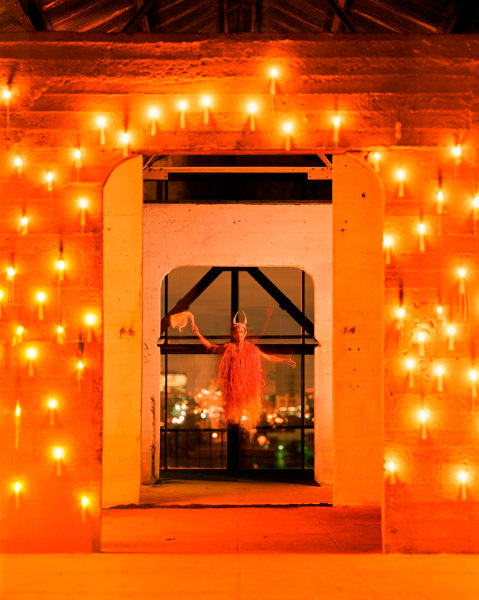
A collaboration between Harris and his brother, artist Lyle Ashton Harris, “Alchemy” is a multimedia installation that includes a series of cibachrome prints exploring cosmologies of the global African diaspora. “Alchemy” was presented in 1998 at New Langton Arts (San Francisco) and the Corcoran Gallery of Art (Washington D.C.); in 1999 selections were shown at the Centre d’Art Contemporain (Geneva, Switzerland).
Performance
For Thomas Allen Harris’ performance work, visit bluebabyblues.com (Coming Soon)

